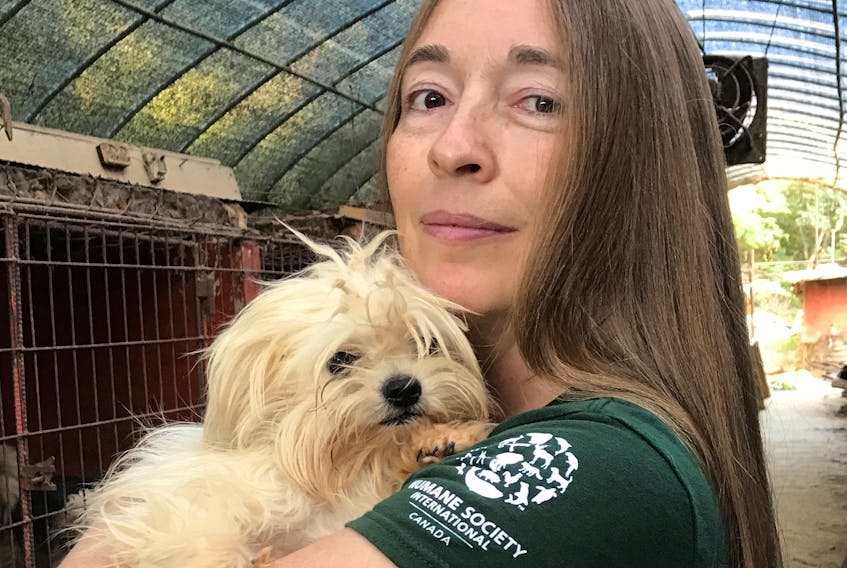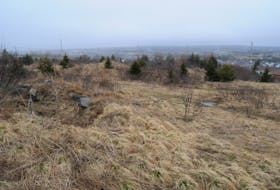When Rebecca Aldworth was a teenager living in downtown St. John’s, she would often feed stray cats in her neighbourhood.
She recalls letting cats into the house whenever her mother would go to work.
Today she’s the executive director of Humane Society International (HSI) in Canada.
Helping animals is something that’s always “come naturally” to her, she said in a telephone interview with The Telegram on Monday.
The Bonne Bay native said her early childhood in rural Newfoundland had a big impact on her love for animals — simply because she’d often see wildlife, such as moose, and “really loved them.”
On Sunday, she returned to her home in Montreal after a week in South Korea, her most recent effort to help animals by rescuing 200 dogs on a meat farm in Namyangju.
“This was one of the worst dog meat facilities I’ve seen,” she said.
“The dogs were in these barren metal cages positioned over literally months of feces, and the smell was just overwhelming.”
She said the dogs were emaciated, and had various injuries and skin conditions, as well as eye infections.
Aldworth said the experience was “devastating because of the suffering we were witnessing,” but also “incredible because of the knowledge that every single one of those dogs was going to be rescued.”
HSI quarantined the dogs for a month, during which time they received veterinary care and vaccinations.
“We’re seeing quite an improvement in these dogs and they’re now strong enough to travel.”
The dogs are being relocated to shelters in Canada, the United States, the Netherlands and the United Kingdom.
About 80 to 90 of them will go to shelters in Ontario and Quebec. From there, people across Canada can adopt them.
Anyone interested in adopting the dogs can learn more online at hsicanada.ca/savedogs.
Aldworth will welcome the dogs at Pearson International Airport — many of them are scheduled to arrive on Thursday — and will oversee finding them homes.
“For anybody that sees suffering first-hand, you do everything in your power to stop it,” she said.
“For me, the best way to do that was to devote my life and my career to doing that. For others, it’s rescuing animals in their own home. I think we all do everything that we can to protect animals and to stop suffering where we find it.”
Aldworth moved to Montreal when she was 21 to study fine arts at Concordia University.
She began volunteering with animal rescue groups and that’s when she realized there were people making careers in animal protection, and she had found her calling.
She has been with HSI for 15 years.
This most recent farm is the 13th that HSI has helped shut down.
“Our goal is to rescue the dogs and to find a solution that will benefit not just the dogs, but also the farmers that are involved in the industry,” said Aldworth.
The organization helps farmers transition to more humane industries, such as sustainable crop-growing businesses.
Farmers who avail of the program are required to sign a contract saying they will never again be involved in the dog meat trade, and they must allow HSI to rescue the dogs.
Aldworth calls it a “win-win situation” for everybody.
“We still have relationships with the farmers that we’ve moved out of this industry, and they’re all reporting that they’re doing very well, that it’s the best thing that’s ever happened to them because they’re now starting to make money in their new industries, and it’s a much easier life for them.
“At the same time, we have these amazing after stories of the dogs that we bring back, many of them to Canada, who are in forever homes and thriving.”
Twitter: @juanitamercer_









